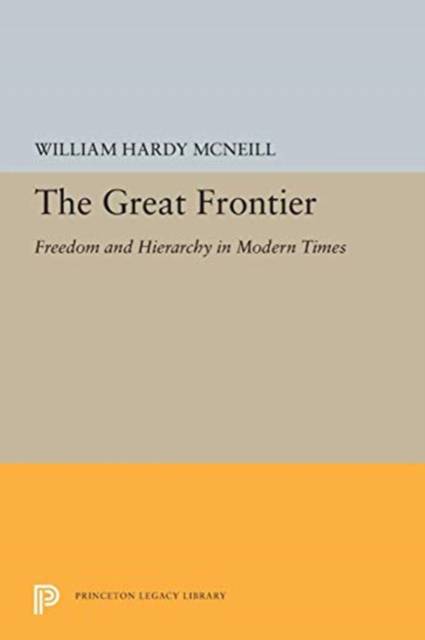
- Retrait gratuit dans votre magasin Club
- 7.000.000 titres dans notre catalogue
- Payer en toute sécurité
- Toujours un magasin près de chez vous
- Retrait gratuit dans votre magasin Club
- 7.000.0000 titres dans notre catalogue
- Payer en toute sécurité
- Toujours un magasin près de chez vous
Description
A leading American historian examines the character of the frontiers of European expansion throughout the modern age, questioning a notion of frontier freedom popular since Turner. William McNeill argues that social hierarchy characterized the frontier more often than pioneer equality. As Europeans traveled to various lands, bringing new diseases to vulnerable natives, formerly isolated populations died in great numbers, creating an "open" frontier where labor was scarce. European efforts to develop frontier areas involved either a radical leveling of the hierarchies common in Europe itself or, alternatively, their sharp reinforcement by resort to slavery, serfdom, peonage, and indentured labor.
Juxtaposing national and transnational experiences and illuminating the complex interchange of peoples (and illnesses) in the modern era, Professor McNeill brings the history of the United States into perspective as an example of a process that encircled the globe. His book clarifies both the experience of the global frontier and the processes that now mark the end of hundreds of year of expansion of the European center.
William H. McNeill is Robert A. Millikan Distinguished Service Professor of History at the University of Chicago. His numerous books include The Rise of the West (Chicago); Plagues and Peoples (Doubleday); and The Human Condition (Princeton).
Spécifications
Parties prenantes
- Auteur(s) :
- Editeur:
Contenu
- Nombre de pages :
- 88
- Langue:
- Anglais
- Collection :
- Tome:
- n° 5456
Caractéristiques
- EAN:
- 9780691655666
- Date de parution :
- 19-02-19
- Format:
- Livre broché
- Format numérique:
- Trade paperback (VS)
- Dimensions :
- 156 mm x 234 mm
- Poids :
- 127 g

Les avis
Nous publions uniquement les avis qui respectent les conditions requises. Consultez nos conditions pour les avis.






